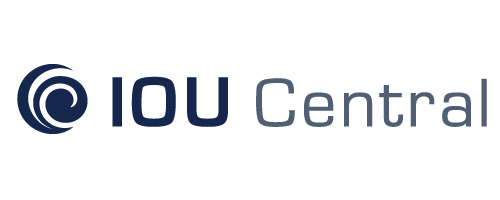 Well, that didn’t take long. IOUCentral appears to have been essentially shut down by regulators here in Canada and they have disabled their loan and application functionality and are now repaying any fulfilled loans. The startup, which we covered, launched just a few weeks ago.
Well, that didn’t take long. IOUCentral appears to have been essentially shut down by regulators here in Canada and they have disabled their loan and application functionality and are now repaying any fulfilled loans. The startup, which we covered, launched just a few weeks ago.
We are not aware of the specific “regulatory matter” that seems to have shut down IOUCentral, and I won’t pretend to know enough about the banking industry to comment, but we did ask them about regulatory issues when we first interviewed them earlier this month. At the time they indicated that their legal agreements should have provided sufficient operating cover. It now appears that wasn’t the case.
In a recent Toronto Star article, IOUCentral competitor CommunityLend indicated that they were focusing on making sure that regulators were satisfied before their launch.
” . . .CommunityLend executives hint they will have an edge because of the time devoted to satisfying a host of regulators across Canada.
Marleau of IOU Central, however, is under the impression “there is no watchdog watching this business.” . . ”
This now puts IOUCentral back in the race with CommunityLend and PeerMint among others to become Canada’s first peer-to-peer lending operation.
We have asked IOUCentral for comment and will update this post with anything they have to say.
Anyone could have seen this one coming. Our banking system is no where close to that of the United States. Anyone who’s driven through both can quickly realize anyone can open a bank up in the US. In Canada, if you’re going to be accepting deposits at that sort of scale, you’ll need to be a chartered bank, a trust, a credit union or a caisses populaire. The government has a tight leash on banking in Canada (and thankfully so).
Anyone could have seen this one coming. Our banking system is no where close to that of the United States. Anyone who’s driven through both can quickly realize anyone can open a bank up in the US. In Canada, if you’re going to be accepting deposits at that sort of scale, you’ll need to be a chartered bank, a trust, a credit union or a caisses populaire. The government has a tight leash on banking in Canada (and thankfully so).
My guess is that they were trying to persuade the regulators that they aren’t actually a deposit-taking institution. Which I do have some agreement with, they’re merely transferring money from one chartered bank account to another (their’s at National Bank of Canada).
Paypal seems to be operating here quite well working with the same principles, and the Canadian banks haven’t been forced to shut them out either.
My guess is that they were trying to persuade the regulators that they aren’t actually a deposit-taking institution. Which I do have some agreement with, they’re merely transferring money from one chartered bank account to another (their’s at National Bank of Canada).
Paypal seems to be operating here quite well working with the same principles, and the Canadian banks haven’t been forced to shut them out either.
More on current status and reasons why the regulator intervened:
http://www.wiseclerk.com/group-news/countries/canada-background-on-regulators-action-against-iou-central/
More on current status and reasons why the regulator intervened:
http://www.wiseclerk.com/group-news/countries/canada-background-on-regulators-action-against-iou-central/
Looking forward to further updates. Social lending is always an interesting topic, and it will be interesting to see which firm wins out. Keep us posted.
Looking forward to further updates. Social lending is always an interesting topic, and it will be interesting to see which firm wins out. Keep us posted.
Thanks for the info! It took some time to catch on but I’ve got it now. thanks.
If you want to visit my site http://www.nfcu-org.com.
Thanks for the info! It took some time to catch on but I’ve got it now. thanks.
If you want to visit my site http://www.nfcu-org.com.
Thanks you for information.nfcu